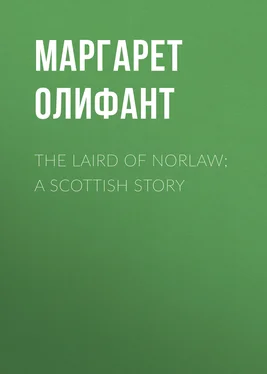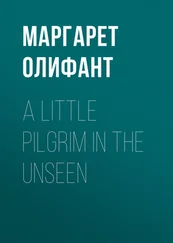Маргарет Олифант - The Laird of Norlaw; A Scottish Story
Здесь есть возможность читать онлайн «Маргарет Олифант - The Laird of Norlaw; A Scottish Story» — ознакомительный отрывок электронной книги совершенно бесплатно, а после прочтения отрывка купить полную версию. В некоторых случаях можно слушать аудио, скачать через торрент в формате fb2 и присутствует краткое содержание. Жанр: foreign_prose, literature_19, foreign_antique, на английском языке. Описание произведения, (предисловие) а так же отзывы посетителей доступны на портале библиотеки ЛибКат.
- Название:The Laird of Norlaw; A Scottish Story
- Автор:
- Жанр:
- Год:неизвестен
- ISBN:нет данных
- Рейтинг книги:3 / 5. Голосов: 1
-
Избранное:Добавить в избранное
- Отзывы:
-
Ваша оценка:
- 60
- 1
- 2
- 3
- 4
- 5
The Laird of Norlaw; A Scottish Story: краткое содержание, описание и аннотация
Предлагаем к чтению аннотацию, описание, краткое содержание или предисловие (зависит от того, что написал сам автор книги «The Laird of Norlaw; A Scottish Story»). Если вы не нашли необходимую информацию о книге — напишите в комментариях, мы постараемся отыскать её.
The Laird of Norlaw; A Scottish Story — читать онлайн ознакомительный отрывок
Ниже представлен текст книги, разбитый по страницам. Система сохранения места последней прочитанной страницы, позволяет с удобством читать онлайн бесплатно книгу «The Laird of Norlaw; A Scottish Story», без необходимости каждый раз заново искать на чём Вы остановились. Поставьте закладку, и сможете в любой момент перейти на страницу, на которой закончили чтение.
Интервал:
Закладка:
The boy stared aghast into his brother’s face. The land! it had been Cosmo’s dream by night, and thought by day. The poetic child had made, indeed, a heroic kingdom and inheritance out of that little patrimonial farm. Notwithstanding, he turned to Patie for confirmation, but found no comfort there.
“As you think best, Huntley,” said the second son, “but what is a name? My mother will care little for Norlaw when we are gone, and the name of a landed family has kept us poor. I’ve found things out as well as you. I thought it would be best to part with all.”
“It was almost his last word,” said Huntley, sadly.
“Ay, but he could not tell,” said the stout-hearted boy; “he was of another mind from you or me; he did not think that our strength and our lives were for better use than to be wasted on a word. What’s Norlaw Castle to us, more than a castle in a book? Ay, Cosmo, it’s true. Would you drag a burden of debt at Huntley’s feet for the sake of an acre of corn-land, or four old walls? We’ve been kept down and kept in prison, us and our forbears, because of Norlaw. I say we should go free.”
“And I,” cried Cosmo, lifting his long, white hand in sudden passion, “I, if Huntley does not care for the name, nor for my father’s last wish, nor for the house of our ancestors; I will never rest night nor day, though I break my heart or lose my life, till I redeem Norlaw!”
Huntley, whose arm still rested on the boy’s shoulder, drew him closer, with a look which had caught a tender, sympathetic, half-compassionate enthusiasm from his.
“We’ll save Norlaw for my father’s son,” said the elder brother; and, young as Huntley was, he looked with eyes full of love and pity upon this boy, who inherited more from his father than his name. Huntley had been brought up in all the natural love and reverence of a well-ordered family; he knew there was weakness in his father’s character, beautiful, lovable, tender weakness, for which, somehow, people only seem to like him better. He had not permitted himself to see yet what harm and selfish unconsciousness of others that graceful temperament had hidden. He looked at Cosmo, thinking as a strong mind thinks of that constitution which is called poetic—of the sensitive nature which would shrink from unkindness, and the tender spirit which could not bear the trials of the world; and the lad’s heart expanded over his father’s son.
Patie got up from his chair, and went to the little bookcase in the corner to look for another book of sermons. This boy could not blind his eyes, even with family affection. He loved his father, but he knew plainly, and in so many words, that his father had ruined their inheritance. He could not help seeing that this amiable tenderness bore no better fruit than selfishness or cruelty. He thought it would be right and just to all their hopes to part with even the name of Norlaw. But it was not his concern; he was ready to give his opinion at the proper time, but not to stand out unreasonably against the decision of his elder brother; and when he, too, looked at Cosmo, it was with soberer eyes than those of Huntley—not that he cared less for his father’s son—but Patrick could not help seeing with those clear eyes of his; and what he feared to see was not the sensitive nature and the tender spirit, but the self-regard which lay beneath.
Which of them was right, or whether either of them were right, this history will best show.
CHAPTER V
Sabbath night; a July night, sweet with summer stars and moonlight, and with no darkness in it: the water running soft with its quietest murmur, the thrush and blackbird beguiled to sing almost as late as the southland nightingale; the scent of the late roses coming round the corner of the house on the faint breeze; the stars clustered in a little crowd over the gaunt castle walls, and in the distance the three weird Eildons, standing out dark against the pale azure blue and flood of moonlight; a Sabbath evening with not a sound in it, save the sweetest sounds of nature, a visible holy blessing of quiet and repose.
But the table was spread in the dining-parlor at Norlaw; there was a basket of oat-cakes and flour “bannocks” upon the table, in a snowy napkin, and butter, and milk, and cheese, all of the freshest and most fragrant, the produce of their own lands. Two candles made a little spot of light upon the white table-cloth, but left all the rest of the room in dreary shadow. To see it was enough to tell that some calamity oppressed the house—and when the widow came in, with her face of exhaustion, and eyes which could weep no more for very weariness, when the boys followed slowly one by one, and Marget coming in with the solemn, noiseless step, so unusual to her, hovered about them with all her portentous gravity, and unwonted attendance, it was not hard to conclude that they ate and drank under the shadow of death. The Mistress had not appeared that day, from the early breakfast until now; it was the only time before or after when she faltered from the ways of common life.
When they had ended the meal, which no one cared to taste, and when the lads began to think with some comfort, in the weariness of their youth, that the day at last was over, Mrs. Livingstone drew her chair away from the table, and looked at them all with the sorrowful tenderness of a mother and a widow. Then, after a long interval, she spoke.
“Bairns!” she said, with a voice which was hoarse with solicitude and weeping, “you’re a’ thinking what you’re to do, and though it’s the Sabbath day, I canna blame ye, but me, I’m but a weak woman—I could not say a word to counsel ye, if it was to save the breaking of my heart this day.”
“We never looked for it, mother. There’s time enough! do you think we would press our plans on you?” cried the eager Huntley, who had been groaning but a few hours ago, at this compulsory delay.
“Na, I could not do it,” said the mother, turning her head aside, and drawing the hem of her apron through her fingers, while the tears dropped slowly out of her tired eyes; “this is the last Sabbath day that him and me will be under the same roof. I canna speak to you, bairns; I’m but a weak woman, and I’ve been his wife this five-and-twenty years.”
After a pause, the Mistress dried her eyes, and went on hurriedly:—
“But I ken ye must have your ain thoughts; the like of you canna keep still a long summer day, though it is a Sabbath; and, bairns, I’ve just this to say to you; ye canna fear mair than we’ll have to meet. I’m thankful even that he’s gane hame before the storm falls; for you’re a’ young, and can stand a blast. There’s plenty to do, and plenty to bear. I dinna forbid ye thinking, though it’s Sabbath night, and death is among us; but oh! laddies, think in a godly manner, and ask a blessing—dinna darken the Sabbath with worldly thoughts, and him lying on his last bed up the stair!”
The boys drew near to her simultaneously, with a common impulse. She heard the rustle and motion of their youthful grief, but she still kept her head aside, and drew tightly through her fingers the hem of her apron.
“The day after the morn,” continued the widow, “I’ll be ready with all that I ken, and ready to hear whatever you think for yourselves; think discreetly, and I’ll no’ oppose, and think soberly, without pride, for we’re at the foot of the brae. And we’ve nae friends to advise us, bairns,” continued the Mistress, raising her head a little with the very pride which she deprecated; “we’ve neither kith nor kin to take us by the hand, nor give us counsel. Maybe it’s a’ the better—for we’ve only Providence to trust to now, and ourselves.”
By this time she had risen up, and taking the candle which Patrick had lighted for her, she stood with the little flat brass sconce in her hand, and the light flickering over her face, still looking down. Yet she lingered, as if she had something more to say. It burst from her lips, at last, suddenly, almost with passion.
Читать дальшеИнтервал:
Закладка:
Похожие книги на «The Laird of Norlaw; A Scottish Story»
Представляем Вашему вниманию похожие книги на «The Laird of Norlaw; A Scottish Story» списком для выбора. Мы отобрали схожую по названию и смыслу литературу в надежде предоставить читателям больше вариантов отыскать новые, интересные, ещё непрочитанные произведения.
Обсуждение, отзывы о книге «The Laird of Norlaw; A Scottish Story» и просто собственные мнения читателей. Оставьте ваши комментарии, напишите, что Вы думаете о произведении, его смысле или главных героях. Укажите что конкретно понравилось, а что нет, и почему Вы так считаете.












